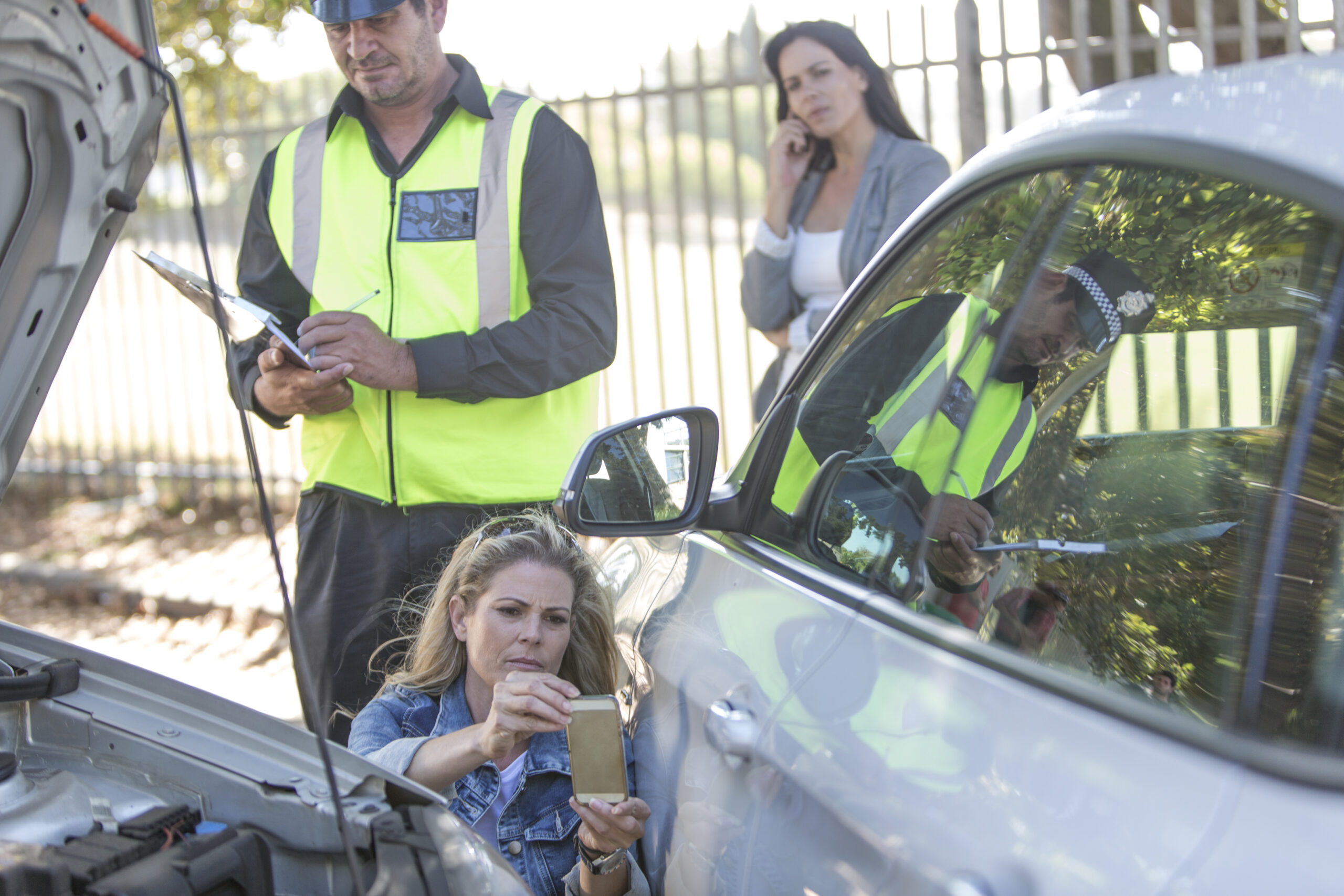In this blog post, I am going to be talking about negligence. What is it, and how does it apply to the law and traffic accident cases specifically?
In my most recent blog post, I outlined the types of cases personal injury law covers. As implied, this type of civil law involves victims who have been injured. These victims sue the people responsible for their injuries.
Negligence is Debated in Civil Lawsuits
If you sue someone in court for hurting you or causing injuries you have received, you are declaring him or her “negligent.” In other words, you are saying, “I have been hurt, and somebody else did it. This person did me wrong.”
In legal speech, you are saying that someone committed a tort, or a civil wrong. Negligence is the failure by someone to exercise proper care toward others which a reasonable person would do in the same or similar circumstances. Simply put, someone who is negligent is someone who has committed an offense that has caused you harm.
However, negligent harm is not the same thing as intentional harm.
If someone intended to cause you harm and then did cause you harm, that is different than someone whose actions unintentionally caused you harm. In the law, we differentiate the two lawsuits by calling one an intentional tort and the other negligence. One happened with malice, while the other happened by accident.
4 Elements Needed to Prove a Defendant is Negligent
In order to prove that someone is negligent, a plaintiff has to show the court four things. These pieces of proof are known as “elements of proof.”
Element of Negligence # 1: Duty
The first thing plaintiffs must prove in a personal injury lawsuit is that someone had a duty of care to protect them or to cause them “no harm.”
By having a duty to take care of somebody, you are responsible for making sure people are safe. For instance:
- Doctors have a specialized duty of care to take care of their patients and do no harm.
- Parents have a familial duty to care for their children, and
- Drivers have a public duty to operate their vehicles safely and with caution, so they do not hit another car or person.
Element of Negligence #2: Breach
Second, a plaintiff must prove that the person who had a duty of care to protect them breached that duty of care.
A doctor has a reasonable duty to take care of his patients. If he does not, that is a breach of their duty of care.
If parents neglect or abuse their children, they have breached their duty to protect and take care of their kids.
When someone’s reckless or illegal driving leads to an accident that causes injuries to another human being, that driver breached his or her duty to keep other drivers or pedestrians safe.
Element of Negligence #3: Causation
The third thing plaintiffs must prove to win a negligence case is that the person’s breach of duty of care caused damages (pain, physical and financial injuries, and suffering).
The way we phrase it in law is a “but for” relationship – “but for your actions,” this would not have happened. Another person’s actions are what caused the accident that injured the plaintiff.
This element of negligence can get tricky if the plaintiff has a history of medical problems. A plaintiff must then prove that these medical issues, injuries, and/or symptoms are new or exacerbated, and that they are not due solely to a prior accident or injury or to their other medical issues.
Element of Negligence #4: Damages
Once the plaintiff establishes that another person caused his/her injuries, the fourth and final thing a plaintiff must do in a negligence case is assign a monetary value to the damages incurred related to that incident.
Obviously, you want the defendant to cover the medical expenses incurred for your physical injuries, but you must also evaluate lost wages, emotional distress, and impact on your life and on those who depend upon you.
How Does Proving the Elements of Negligence Work?
Knowing the elements of negligence is helpful, but knowing how to prove them is critical to winning a traffic accident case. A traffic accident attorney can help you prove the other driver is negligent and get money for you. A typical traffic accident case would be proved in the following steps by your attorney:
- A traffic accident attorney will present proof that the defendant was driving on the same road as the victim – the plaintiff. That immediately establishes that he or she had a duty to drive safely.
- After proving the defendant was the driver, a traffic accident attorney would then prove that the defendant breached his or her duty of care by driving in a negligent manner – by speeding, merging incorrectly, running a red light, turning into your lane, etc.
- Once breach of duty is proven, a traffic accident attorney will outline how your injuries would not have happened but for the other driver’s actions. The attorney will have the plaintiff testify to the accident, having the plaintiff tell the court how the accident happened.
- The traffic accident attorney will then submit proof of your damages. The attorney will submit your medical records, your medical bills, proof of your lost wage, and the like show the court what your injuries were, and to prove how much the defendant (or his/her insurance company) owes you in reimbursements.
Do You Have a Negligence Case?
If you have been injured in a traffic accident, a car accident, truck accident, motorcycle accident, or bicycle accident – even as a pedestrian – you need to know your rights. If you have been injured as a result of someone else’s negligence, it is important to talk to an attorney immediately.
A personal injury attorney can determine if you have a claim and will guide you through the process. Who do you sue? How do you get the best and most appropriate medical attention possible? How do you file insurance claims? Can you sue the at-fault driver’s insurance company?
These are things we do every day. We are familiar with the process, the proof, the injuries, and the insurance companies. Do NOT lose money or leave money on the table. Instead, find out how a traffic accident injury attorney can help you get the money you deserve as a result of someone else’s negligence.
Call us today for a free consultation!

 301-973-6510
301-973-6510 Email Us Now
Email Us Now




